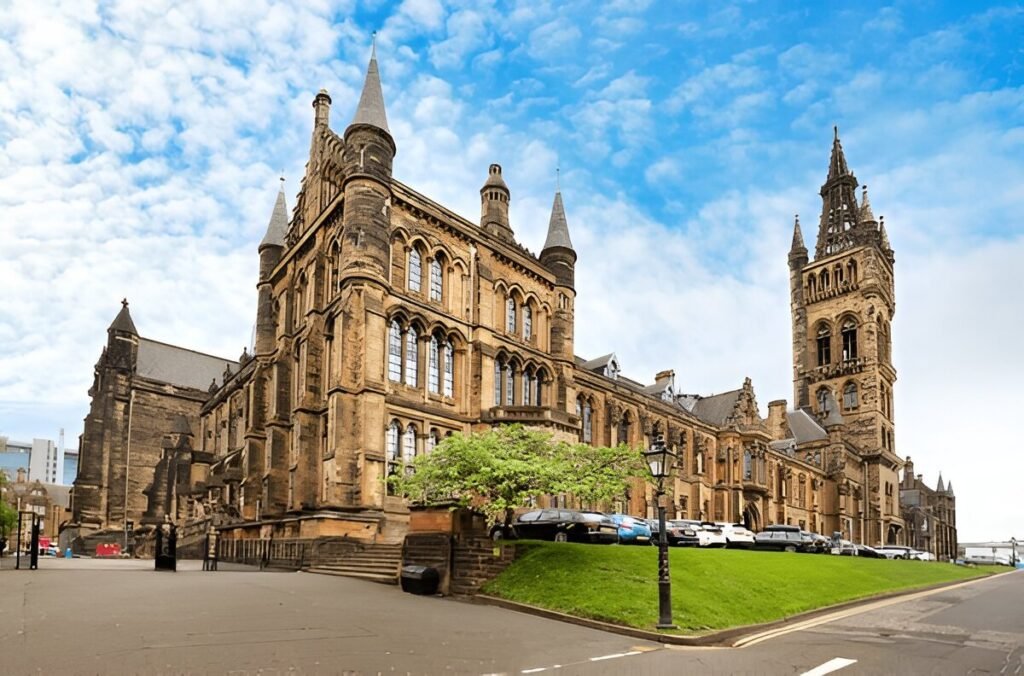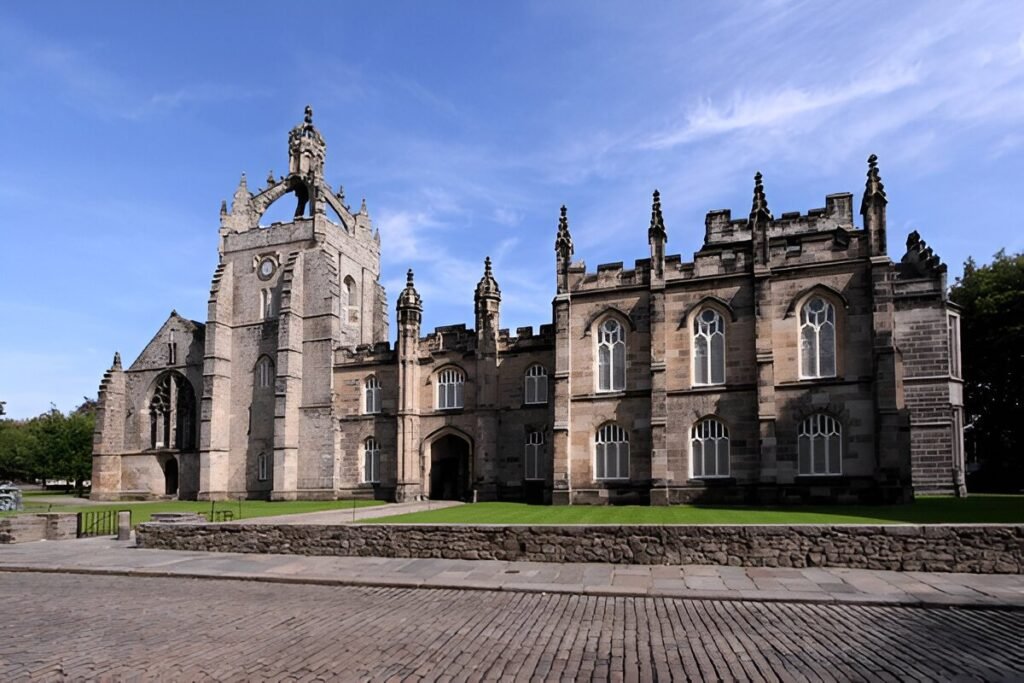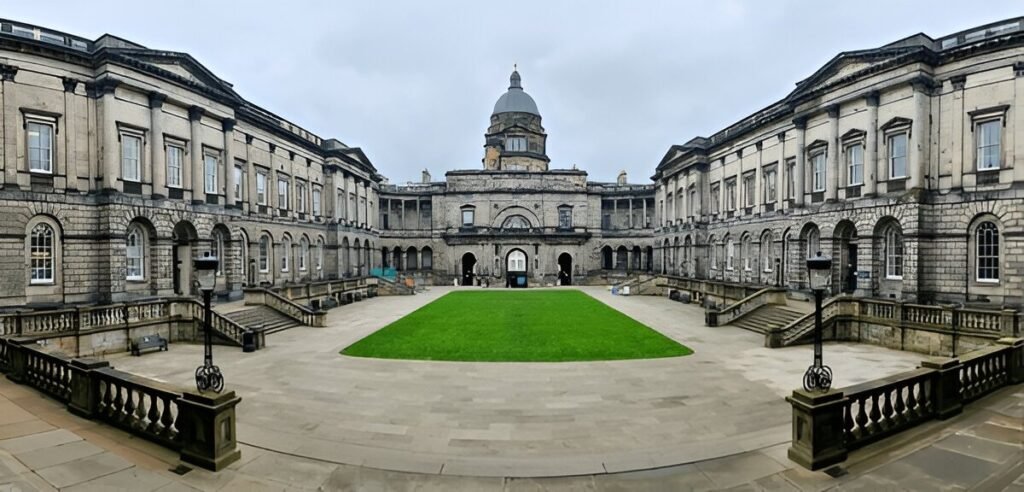Introduction
Scotland has a proud academic tradition, with some of the oldest and most prestigious universities in the world. These institutions have shaped the nation’s intellectual and cultural landscape for centuries, producing groundbreaking research, influential thinkers, and leaders who have left an indelible mark on history.
Scotland’s ancient universities—St Andrews, Glasgow, Aberdeen, and Edinburgh—were established between the 15th and 16th centuries and continue to be centers of learning and innovation today. Each university has its own distinct character, traditions, and contributions to academia. This guide explores the fascinating history, legacy, and modern influence of these institutions.
The University of St Andrews – Scotland’s Oldest University
A Historic Seat of Learning (Founded in 1413)
St Andrews, founded in 1413, is Scotland’s oldest university and the third-oldest in the English-speaking world. Nestled in the coastal town of St Andrews, this university has long been a hub of academic excellence.
Notable Achievements and Traditions
- A center for theological and philosophical studies during the medieval period.
- Alumni include Prince William and Kate Middleton, who met while studying there.
- Famous for its academic red gowns, worn by students during formal events.
The St Andrews Experience
St Andrews is renowned for its strong sense of tradition, beautiful surroundings, and small but elite student body. It consistently ranks among the top universities in the UK, particularly in arts, humanities, and sciences.
The University of Glasgow – A Beacon of the Scottish Enlightenment

Scotland’s Second-Oldest University (Founded in 1451)
Founded in 1451 by Pope Nicholas V, the University of Glasgow has played a pivotal role in shaping modern thought. It was a key center during the Scottish Enlightenment, fostering revolutionary ideas in science, philosophy, and economics.
Contributions to the World
- Adam Smith, the father of modern economics and author of The Wealth of Nations, studied here.
- Lord Kelvin, a pioneer in physics, developed the Kelvin scale of temperature at Glasgow.
- The university played a major role in medical and engineering advancements, particularly in shipbuilding and industry.
Glasgow’s Legacy and Modern Influence
Today, Glasgow continues to be a world-leading research institution, excelling in fields like medicine, engineering, and social sciences. Its iconic Gothic architecture makes it one of the most picturesque universities in the world.
The University of Aberdeen – The Northern Powerhouse

Founded in 1495 – A Blend of Tradition and Innovation
Established by Bishop William Elphinstone, the University of Aberdeen has a rich academic history and has been at the forefront of scientific discoveries and philosophical thought for over five centuries.
Key Contributions to Academia
- Medical innovations: Pioneered the use of ultrasound scanning in pregnancy.
- The university was home to James Clerk Maxwell, one of the greatest physicists in history.
- Houses one of the largest and oldest university libraries in the UK, dating back to the Middle Ages.
Why Aberdeen Stands Out
Aberdeen is unique among Scotland’s ancient universities for its focus on science and medicine. It continues to be a leader in energy research, marine biology, and climate science, thanks to its location in the North Sea oil capital of Europe.
The University of Edinburgh – A Global Intellectual Powerhouse

Founded in 1583 – A Leader in Science and Innovation
The University of Edinburgh was established in 1583 and quickly rose to become one of the most influential universities in Europe. It played a major role in the Scottish Enlightenment, producing some of the world’s greatest thinkers.
Major Contributions to Science and Humanities
- Charles Darwin studied medicine here before developing his theory of evolution.
- Sir Arthur Conan Doyle, the creator of Sherlock Holmes, was an alumnus.
- Dolly the Sheep, the first cloned mammal, was created at the University of Edinburgh.
Edinburgh’s Impact on the Modern World
With its strong research culture and international outlook, Edinburgh remains one of the top universities globally, excelling in medicine, artificial intelligence, and humanities. It is a leading institution for cutting-edge research that shapes the future.
The Legacy of Scotland’s Ancient Universities
Shaping the Modern World
Scotland’s ancient universities have had a profound impact on global academia, politics, and science. They played a crucial role in the Scottish Enlightenment, which helped lay the foundations for modern economics, philosophy, and medicine.
Preserving Tradition While Embracing Innovation
Despite their long histories, these universities continue to lead in cutting-edge research while maintaining their unique traditions and cultural heritage. From graduation ceremonies in historic buildings to ancient student rituals, Scotland’s universities offer a mix of old and new that few institutions can match.
A Top Destination for International Students
With their prestigious reputations, strong research programs, and historic campuses, Scotland’s ancient universities attract students from all over the world. Their influence extends far beyond the UK, with alumni shaping industries, governments, and scientific fields across the globe.
Conclusion
Scotland’s ancient universities are more than just academic institutions—they are living pieces of history that continue to drive innovation, discovery, and education. Whether it’s the medieval charm of St Andrews, the Enlightenment legacy of Glasgow, the scientific achievements of Aberdeen, or the global impact of Edinburgh, these universities remain at the forefront of intellectual and cultural progress.
For students, scholars, and visitors alike, Scotland’s universities offer a unique and inspiring environment—a place where the past meets the future, and where learning knows no bounds.












